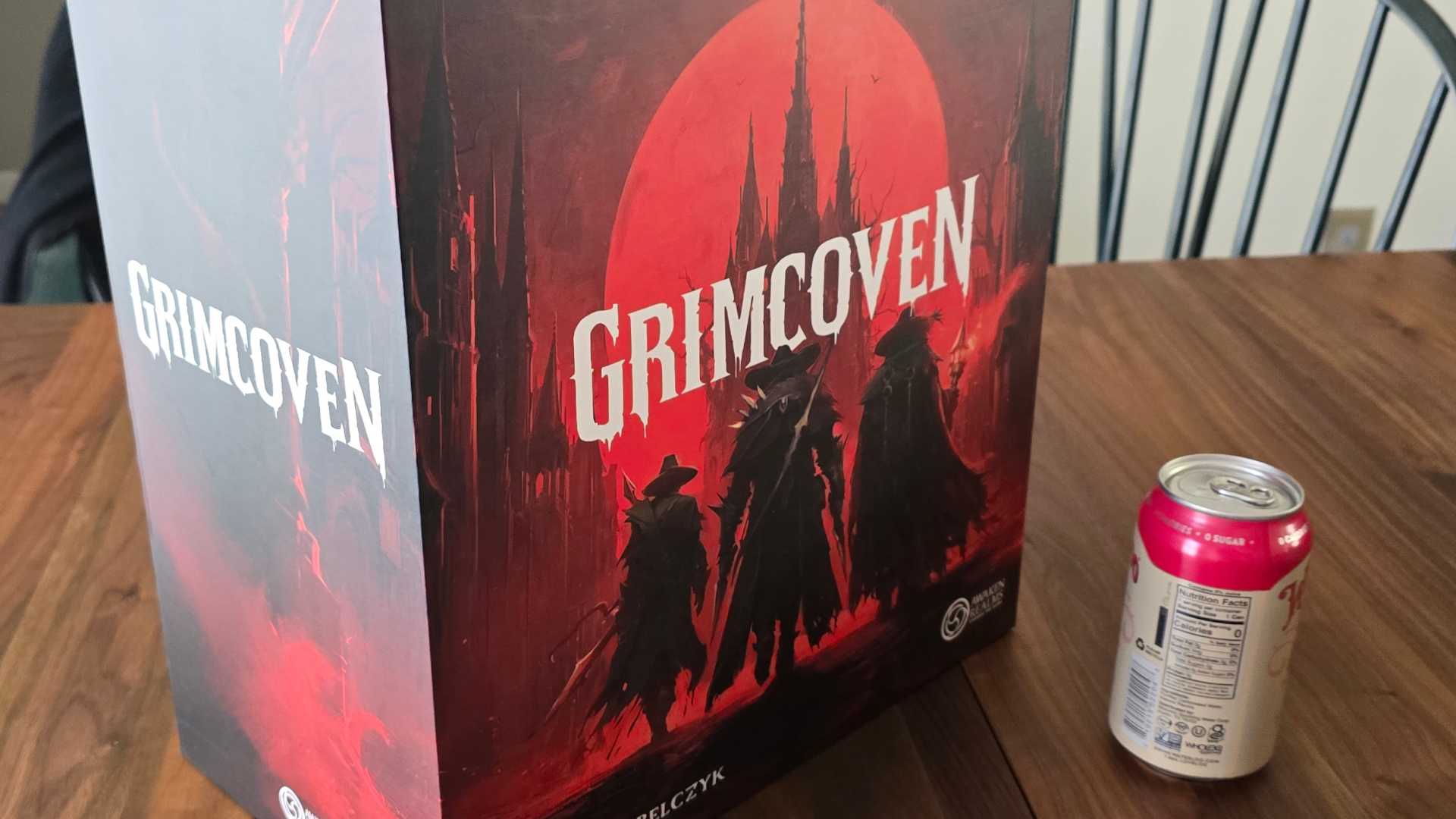Raidou Remastered really is the historical Persona I've always craved, even if I'm 19 years late to using demons to pummel Rasputin
Now Playing | Raidou Remastered: The Mystery of the Soulless Army's historical setting is a wonderful example of just how varied Shin Megami Tensei can be beyond the popular Persona games

Weekly digests, tales from the communities you love, and more
You are now subscribed
Your newsletter sign-up was successful
Want to add more newsletters?

Every Friday
GamesRadar+
Your weekly update on everything you could ever want to know about the games you already love, games we know you're going to love in the near future, and tales from the communities that surround them.

Every Thursday
GTA 6 O'clock
Our special GTA 6 newsletter, with breaking news, insider info, and rumor analysis from the award-winning GTA 6 O'clock experts.

Every Friday
Knowledge
From the creators of Edge: A weekly videogame industry newsletter with analysis from expert writers, guidance from professionals, and insight into what's on the horizon.

Every Thursday
The Setup
Hardware nerds unite, sign up to our free tech newsletter for a weekly digest of the hottest new tech, the latest gadgets on the test bench, and much more.

Every Wednesday
Switch 2 Spotlight
Sign up to our new Switch 2 newsletter, where we bring you the latest talking points on Nintendo's new console each week, bring you up to date on the news, and recommend what games to play.

Every Saturday
The Watchlist
Subscribe for a weekly digest of the movie and TV news that matters, direct to your inbox. From first-look trailers, interviews, reviews and explainers, we've got you covered.

Once a month
SFX
Get sneak previews, exclusive competitions and details of special events each month!
A big part of the Persona 5 appeal is its slick depiction of present day Tokyo – but most of my favorite games in the series are anything but modern. Raidou Remastered: The Mystery of the Soulless Army takes the Shin Megami Tensei series – from which Persona comes from – far into the past instead. In so doing, it feels like a really fresh take on the series' devil summoning action. And, thanks to some huge enhancements, this 2006 PS2-era action RPG is great to play today.
Even some of the Shin Megami Tensei and Persona series' sci-fi concepts are often tinged by history. Shin Megami Tensei 4, one of my favorite RPGs ever made, stars a party of samurai who must contend with a futuristic demon world. Devil Summoner: Soul Hackers may be set in a networked city of tomorrow, but its '90s vision of a tactile cyberpunk-like future still feels nostalgic to me. Raidou Remastered, a remake of Devil Summoner: Raidou Kuzunoha vs. The Soulless Army, leans into these concepts by playing it a lot straighter, set in the 1930s Taisho era.
Making history
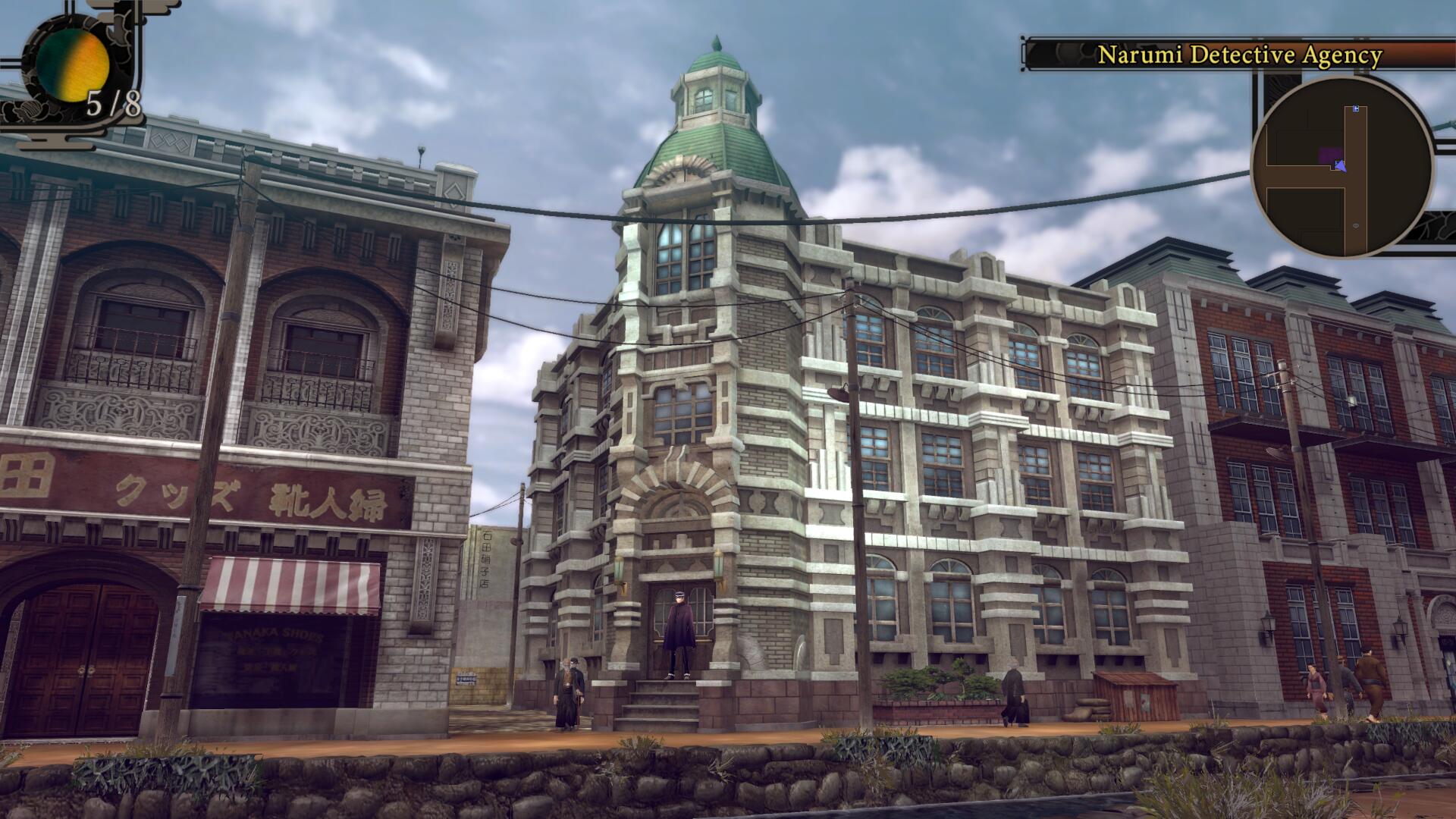
Well, as straight as you can play the 1930s Taisho era considering it doesn't exist (it was 1912–1926 in real life). Raidou Remastered takes place in a fictionalized, extended version of the era that allows the developer to exaggerate the time period's key elements – the rebalancing of political and military powers, encroaching western sensibilities, and industrialization. I've always wanted to see more Persona and Shin Megami Tensei games embrace historical settings – especially as loads of demon designs play with old myths and legends. The Raidou duology has been an anomaly in this regard, but boy does it fit the bill.
Set in Tokyo, you play as Raidou Kuzunoha XIV, the latest in a long line to inherit the title as a spiritual protector of the people, battling rampaging demons while allying with those who can keep the peace. It also provides an excuse to blend in historical figures even when it might not make sense, such as Grigori Rasputin, a rival devil summoner who's up to no good and pulling the strings on a conspiracy that pulls Raidou in. For anyone who loved the Mayan and WW2 conspiracies towards the end of Persona 2, you'll love the approach here – even if it's much less abrasive.
You really do feel like a young detective living on the edge of the paranormal realm.
Even in this fictionalized historical setting, the demon world is hidden from humans, so in order to blend in Raidou joins a detective agency that deals with fringe cases. Which also means beyond each main 'episode' you play through as you unravel the grander mystery at large, you've ample excuse to poke around every nook and cranny of each explorable district of Tokyo, getting to know the spaces, chatting with locals, and helping them out with side cases. You really do feel like a young detective living on the edge of the paranormal realm.
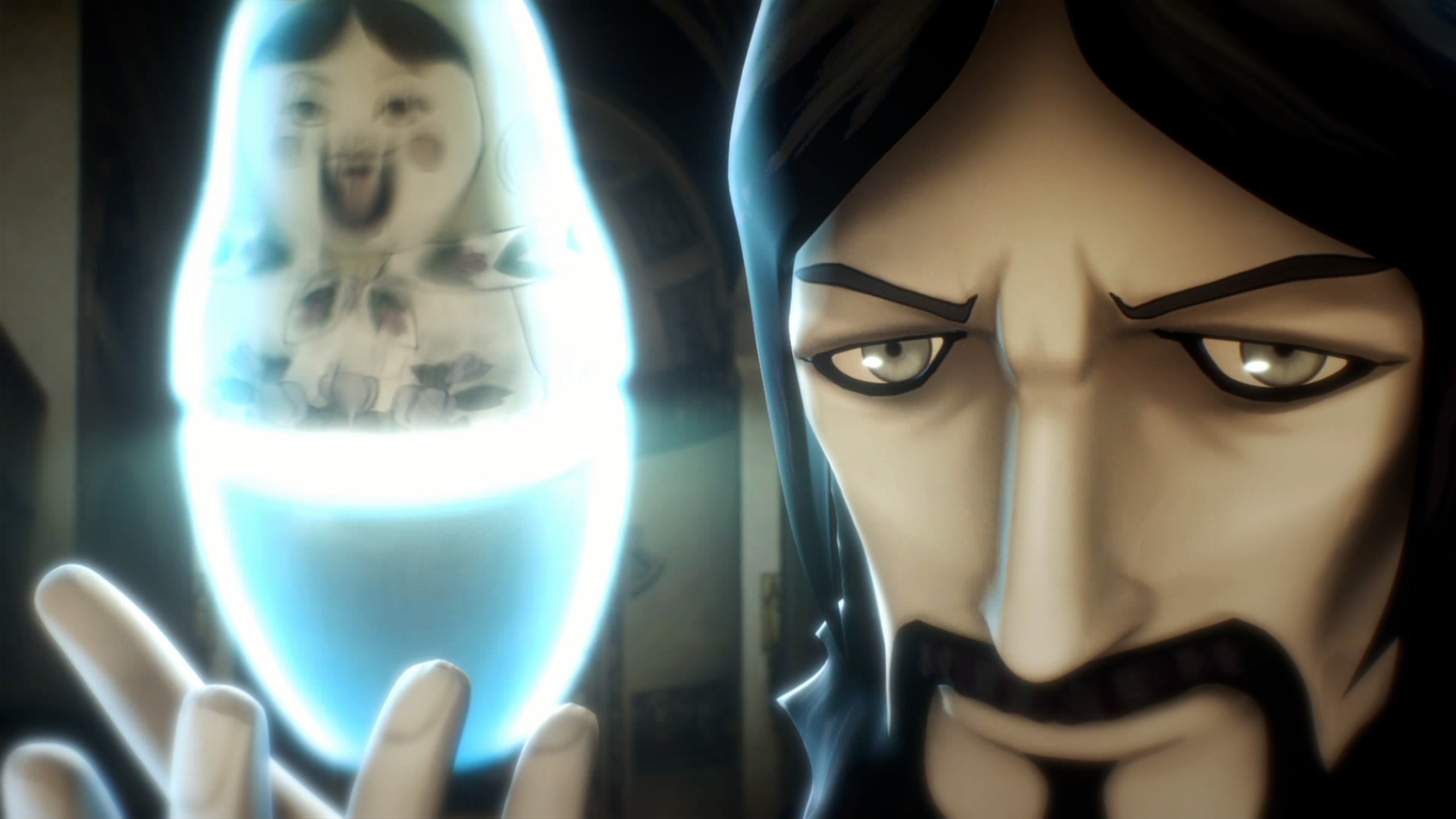
Sometimes those side activities are as simple as having a strong demon hoist an old man struggling to cross the road because of tram and motorcar traffic across it. Other times that means diving into abyssal rifts to slice and dice deadly demons alongside two of your own devilish allies in real-time combat. These vibes were great in the original release, and while the visuals are perhaps overly clean in Remastered, it's easier to soak in the details of the historical setting here thanks to a reduction in grindfest busy work.
A remaster by name, Raidou Remastered has so many tweaks that it feels like calling it that is underselling it – many aspects of the game being completely remade, giving a different feel. For instance, random battles are out, with wandering demons now confined to the dark world versions of Tokyo. You can swap between these two versions as you go, meaning like in Persona you can enjoy exploring the city by just running around, while delving into the demon-filled version to clear these slightly twisted areas like bite-size dungeons.
Weekly digests, tales from the communities you love, and more
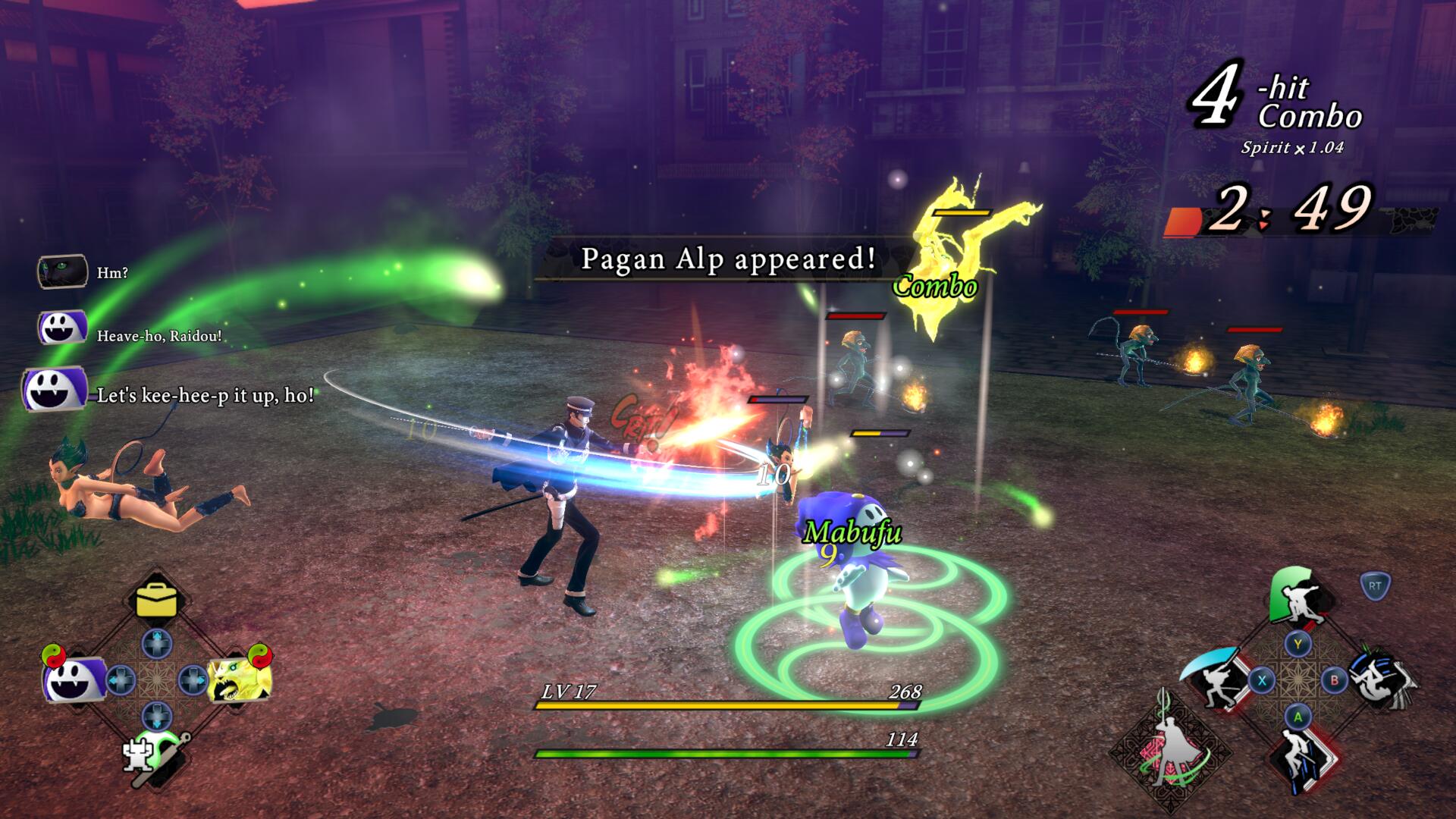
The real-time action is a little easier too, thanks to retrofitting Raidou's dual-summoning powers from the PS2 sequel into this first game. Combat is also so much slicker, a new camera system making you feel like you're really in the middle of scraps with demons – though they still take place in fairly basic square arenas – and moves feeling a lot more responsive. Aiming with Raidou's gun, useful for catching enemies off guard, quickly zooms in for an over-the-shoulder perspective. I don't think I'd ever want Atlus to drop turn-based altogether (our Metaphor ReFantazio review is testament to that), but I'd love for more SMT side games to explore other methods of battling like this.
With more moves in combat, more demons, and quality-of-life perks like free healing from allies in the dark world and fast-travel to the Goumaden for adjusting your demonic party – Raidou Remastered is definitely easier. But, for the most part, being able to choose the amount of grinding you want to do rather than slogging back and forth means you can spend more time appreciating what makes Raidou Remastered really unique – the excellent setting, both through its environments and the people who live there.
Local hero
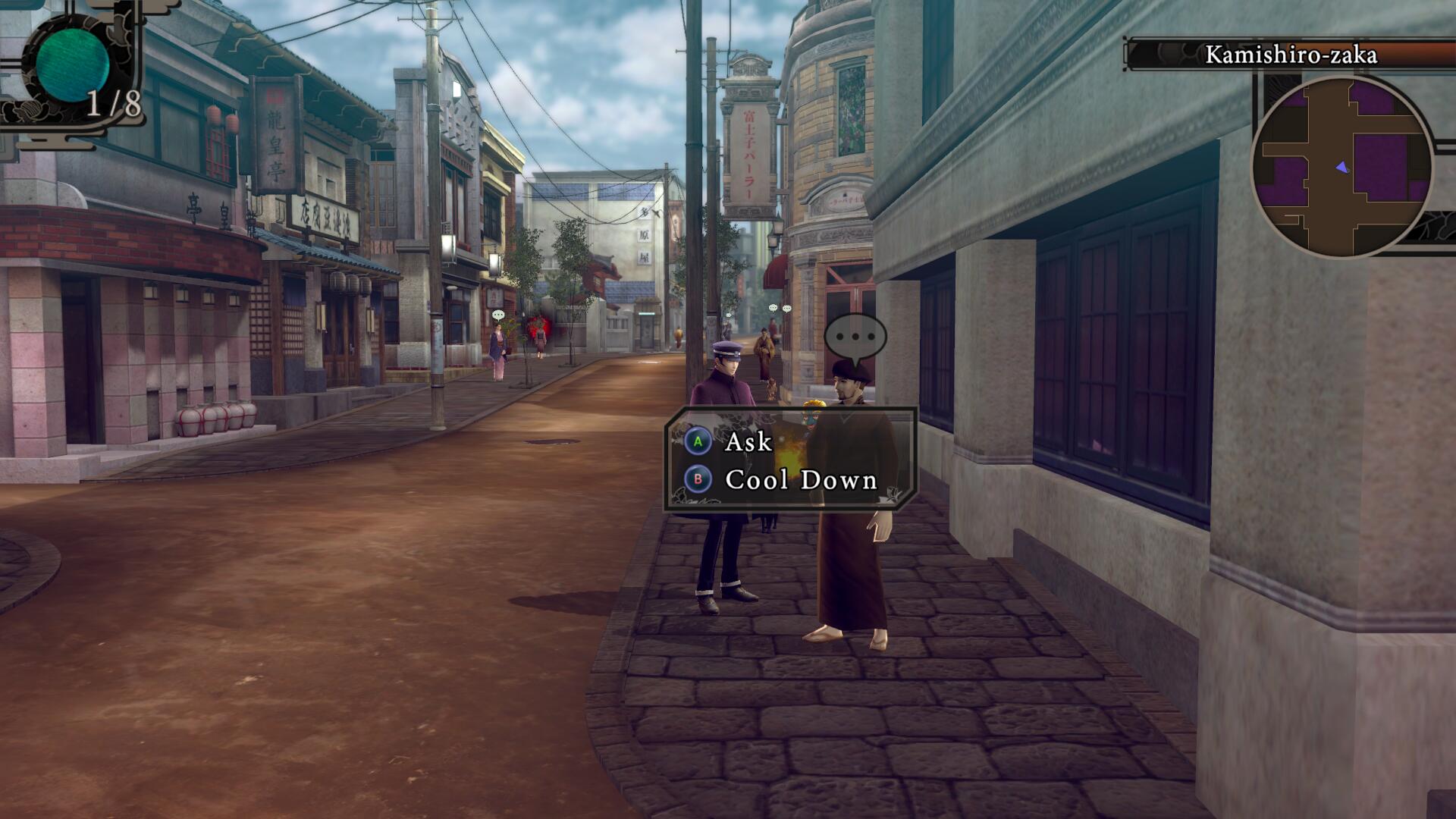
Both you and your demons are able to physically interact with the world before you.
I'm still spending a lot of time in each episode combing back through areas I've already explored to keep up with the NPCs whose storylines progress, using my demon powers to help them out or to learn more about the world – some demons, for instance, can 'fire up' NPCs; or can even read minds. It all contributes to the feeling of the 1930s being more than just a themed backdrop – both you and your demons are able to physically interact with the world before you.
Knowing I'm free to knock about this version of the Taisho period uninhibited really allows me to revel in the details this time around, and I already feel like I'm getting more out of it than my last attempt to get through the original because of it. While the grime of the 2006 release does have a lot of atmosphere, I even quite like the smooth graphics here – these renditions of Kazuma Kaneko's iconic character designs look stunning to behold with how they're rendered here (he's worked on the series since Megami Tensei 2, including the very first Persona game).
While I'd still like for the Shin Megami Tensei to return to the idea of doing a historically-set game rather than the modern day – I'd love a Persona game set in the '90s, or for more pseudo-historical clashing in the next SMT – finally revisiting Kuzunoha's adventures through Raidou Remastered has been the perfect game to scratch that itch. It does leave me wanting more, I yearn for the sheer quantity of experimental SMT games released in the '00s, but for now this is a trip back to the past I didn't know I needed.
Raidou Remastered: The Mystery of the Soulless Army was played on PC, with a code provided by the publisher.
Want to summon more demons? Check out our best Persona games list!

Games Editor Oscar Taylor-Kent brings his years of Official PlayStation Magazine and PLAY knowledge to the fore. A noted PS Vita apologist, he's also written for Edge, PC Gamer, SFX, Official Xbox Magazine, Kotaku, Waypoint, and more. When not dishing out deadly combos in Ninja Gaiden 4, he's a fan of platformers, RPGs, mysteries, and narrative games. A lover of retro games as well, he's always up for a quick evening speed through Sonic 3 & Knuckles or yet another Jakathon through Naughty Dog's PS2 masterpieces.
You must confirm your public display name before commenting
Please logout and then login again, you will then be prompted to enter your display name.
